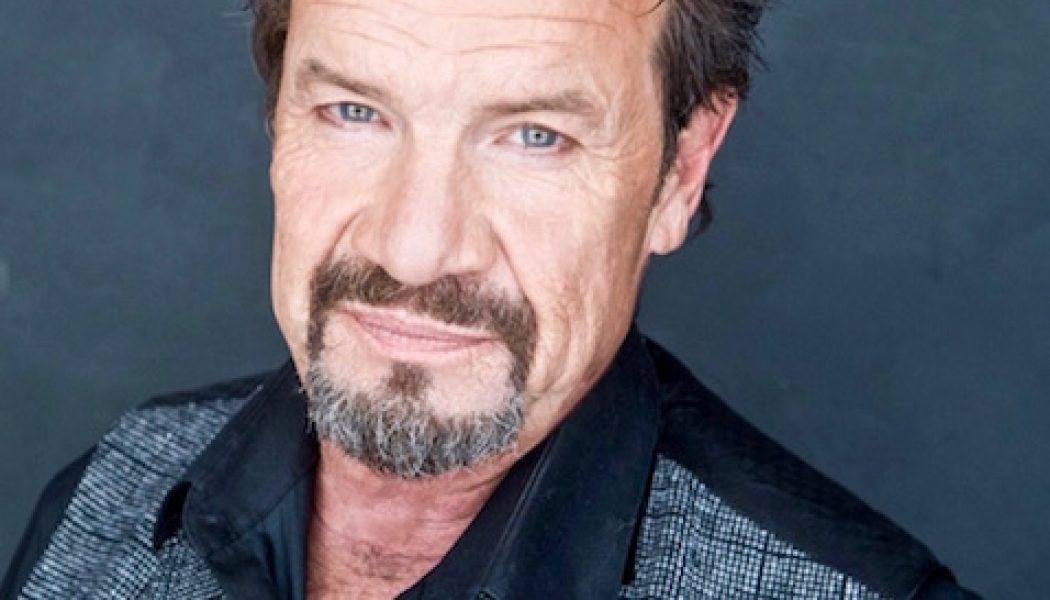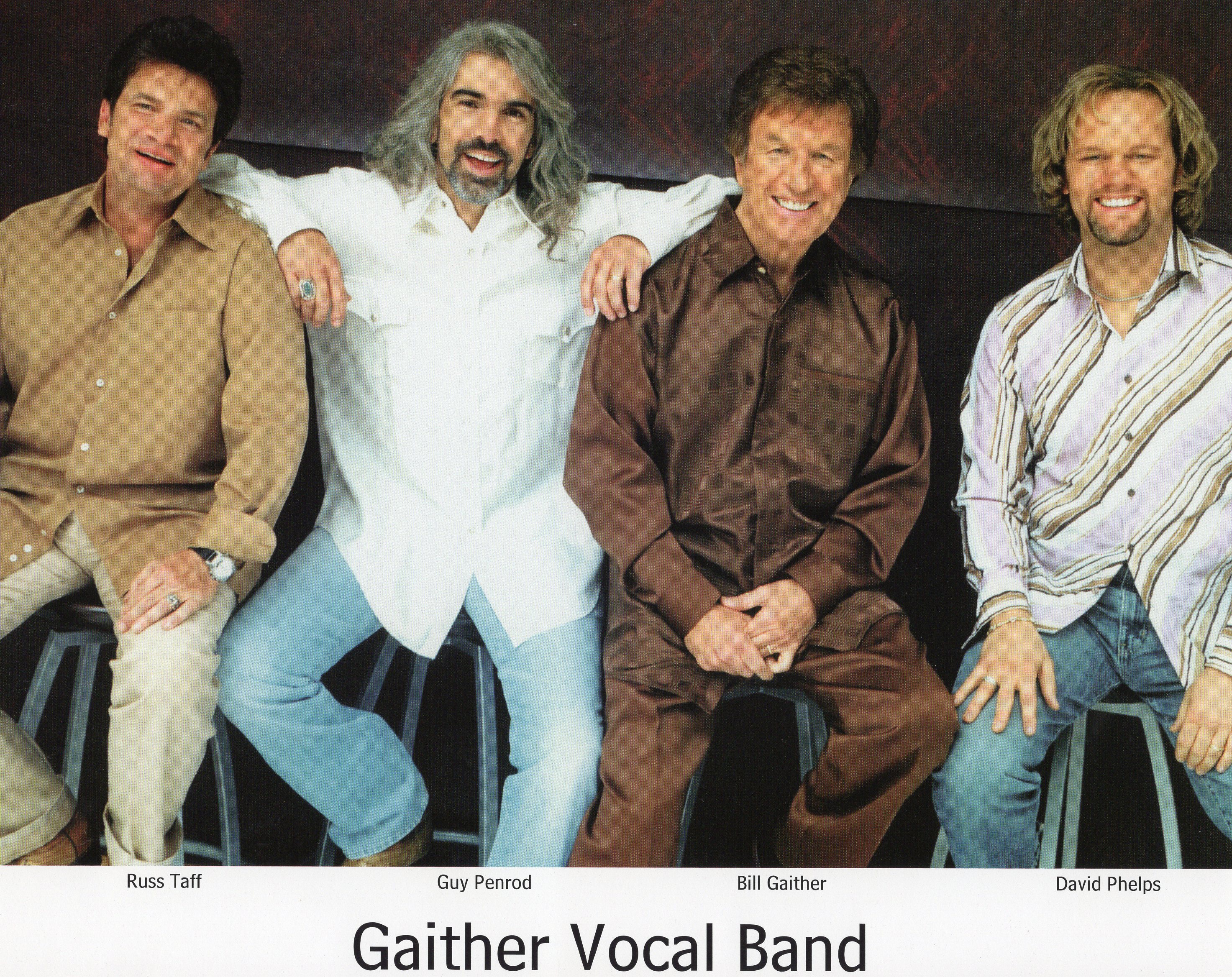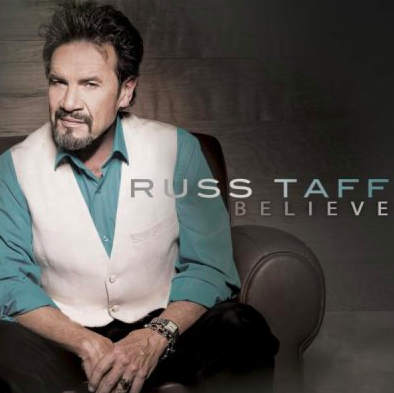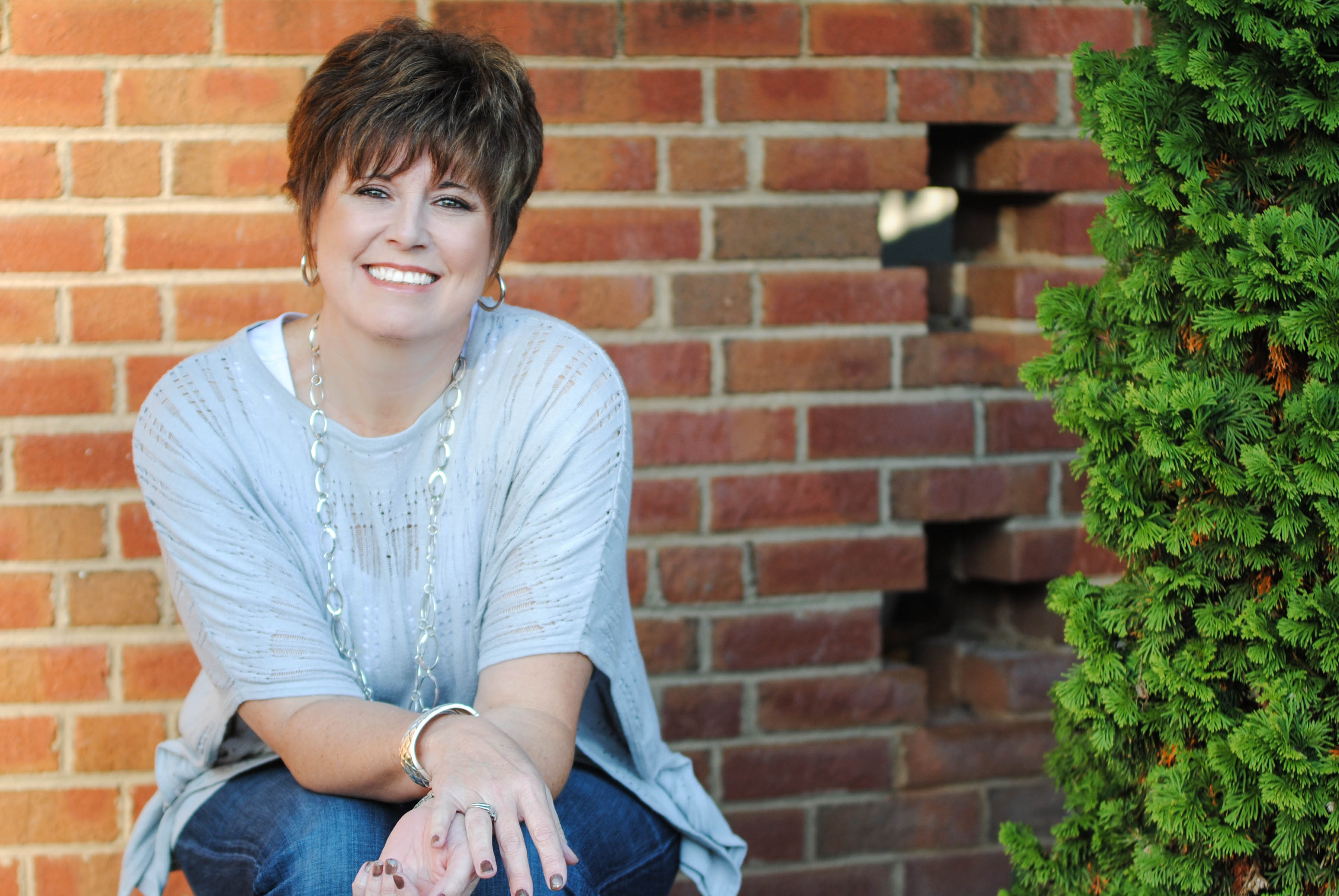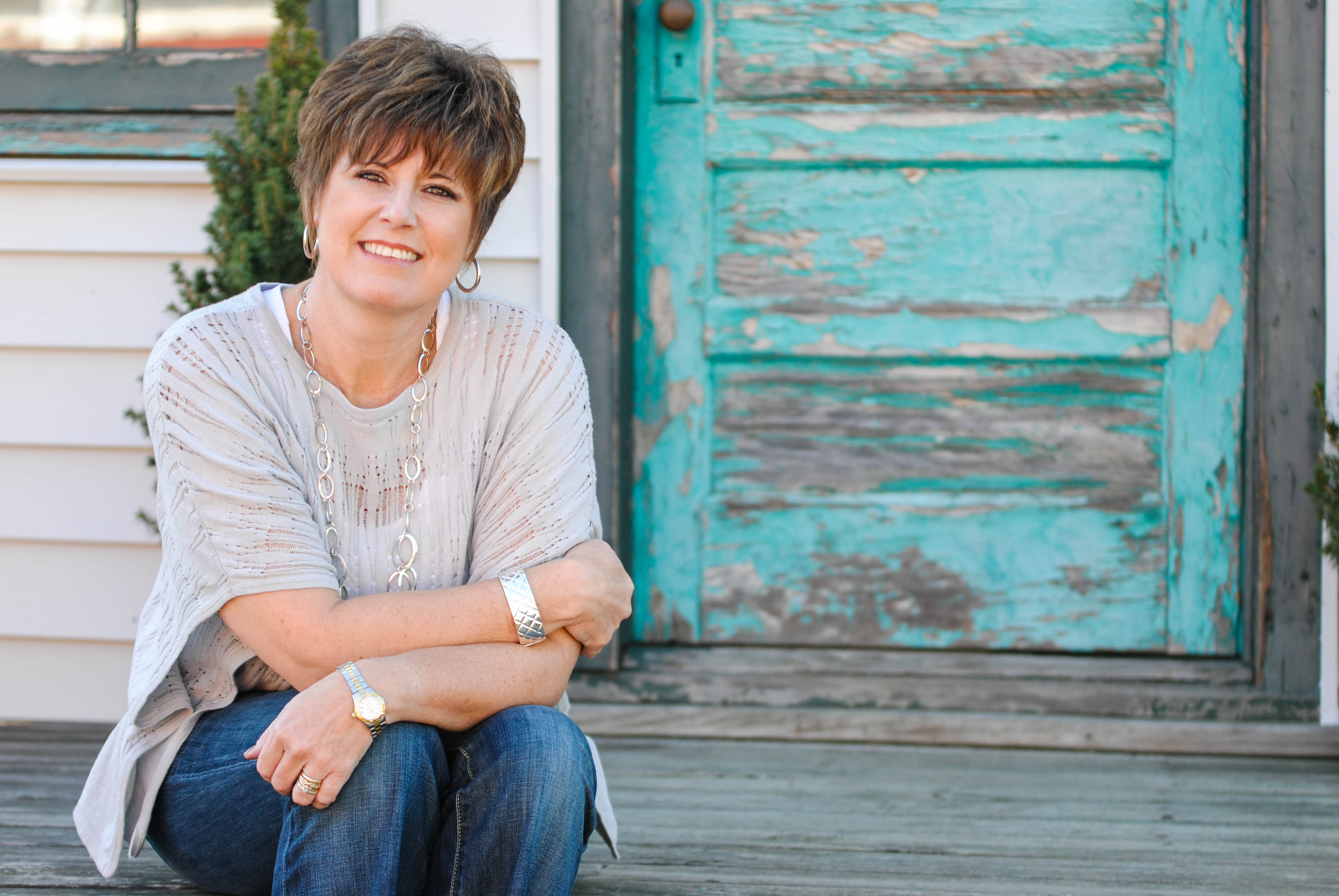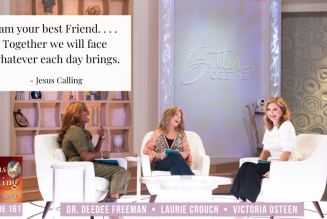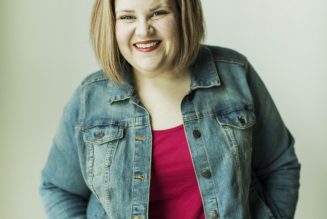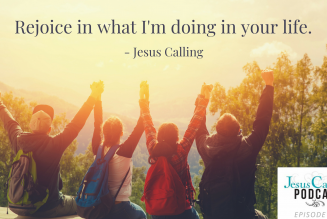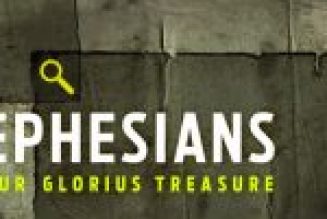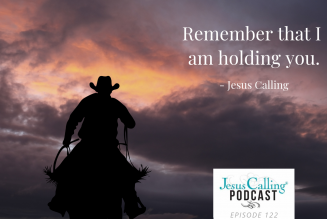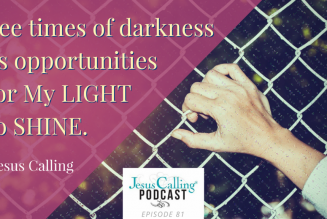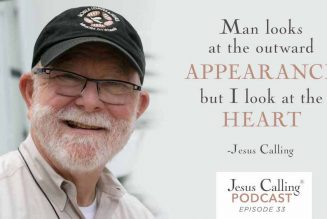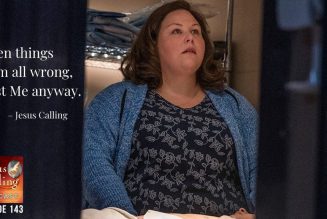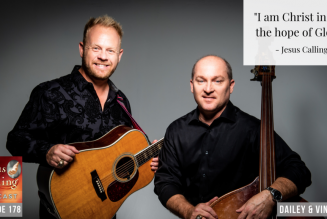Our guests this week have experienced what it’s like to be made whole through Christ: Christian musician Russ Taff and Proverbs 31 author and speaker Wendy Pope. Russ Taff is a GRAMMY and Dove Award-winning vocalist who has been hailed by Billboard magazine as “the single most electrifying voice in Christian music.” Russ shares harrowing experiences from growing up in an abusive and alcoholic home, his own battle with alcoholism, and his lifelong battle with shame. His experience and musical journey has been dramatized in the new film Russ Taff: I Still Believe. Wendy Pope has a heart for speaking to women and helping them step boldly into the lives that God has designed for them. Today, Wendy tells us about her newest book Yes, No, and Maybe: Living with the God of Immeasurably More. She shares how we can see past our disappointments and unfulfilled dreams and instead how we can discover treasures in our lives we may not be able to see at the surface.
Will You Be Made Whole? Musician Russ Taff and Author Wendy Pope- Jesus Calling Episode #117
Narrator: Welcome to the Jesus Calling Podcast. Today, we speak with two guests who have experienced what it’s like to be made whole through Christ: Christian musician Russ Taff and Proverbs 31 author and speaker Wendy Pope. Russ Taff has been hailed by Billboard magazine as “the single most electrifying voice in Christian music.” Russ has garnered six GRAMMY® Awards, 18 Gospel Music Association Dove Awards, and was inducted into the Gospel Music Association Hall of Fame an unprecedented three times—as a soloist, as well as a member of The Imperials and the Gaither Vocal Band. Russ shares moments from his musical journey and his behind-the-scenes struggle growing up in an abusive and alcoholic home, his own alcoholism, and his life-long battle with shame. His experience has also been dramatized in the new film Russ Taff: I Still Believe.
My name is Russ Taff, and I’m a gospel singer. I’ve been a gospel singer for a long time. I travel. I sing. I talk about Jesus and what He’s done in my life.
Growing Up in a Home Filled with Alcohol and Fear
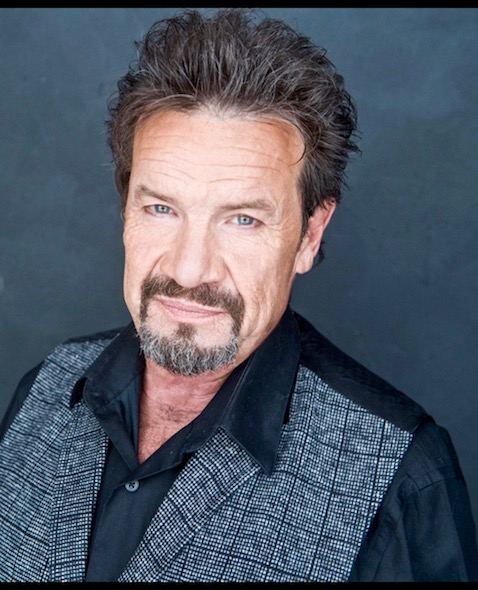 My father was a Pentecostal preacher, but he was also an alcoholic. And one year we would be in church, and the next year would be thrown out of a church. But my dad loved to preach more than anything. So our vacations were spent four weeks of revival in Arkansas and Missouri.
My father was a Pentecostal preacher, but he was also an alcoholic. And one year we would be in church, and the next year would be thrown out of a church. But my dad loved to preach more than anything. So our vacations were spent four weeks of revival in Arkansas and Missouri.
You know it was the old-time Pentecostal home where there was no TV, no radio, no newspapers, no magazines, no nothing. And all the entertainment we had was Mama’s record collection. And she worked in the fields out in a San Joaquin Valley, picking up walnuts, picking cotton. It took both of them working to keep food on the table.
I started singing when I was four. My mother taught me how to play guitar when I was 11. I started learning chords, and so I started doing Dottie Rambo songs because Dottie played simpler keys than Bill and Gloria Gaither. Some of their keys I didn’t know how to play yet, but Dottie was just cutting straight ahead.
I think I was 11 that my dad had relapsed. And they had a meeting at the church—and we’re talking 20 people—we’re not talking about, you know, First Assembly downtown. And you can’t have a drunk pastor, so they voted him out.
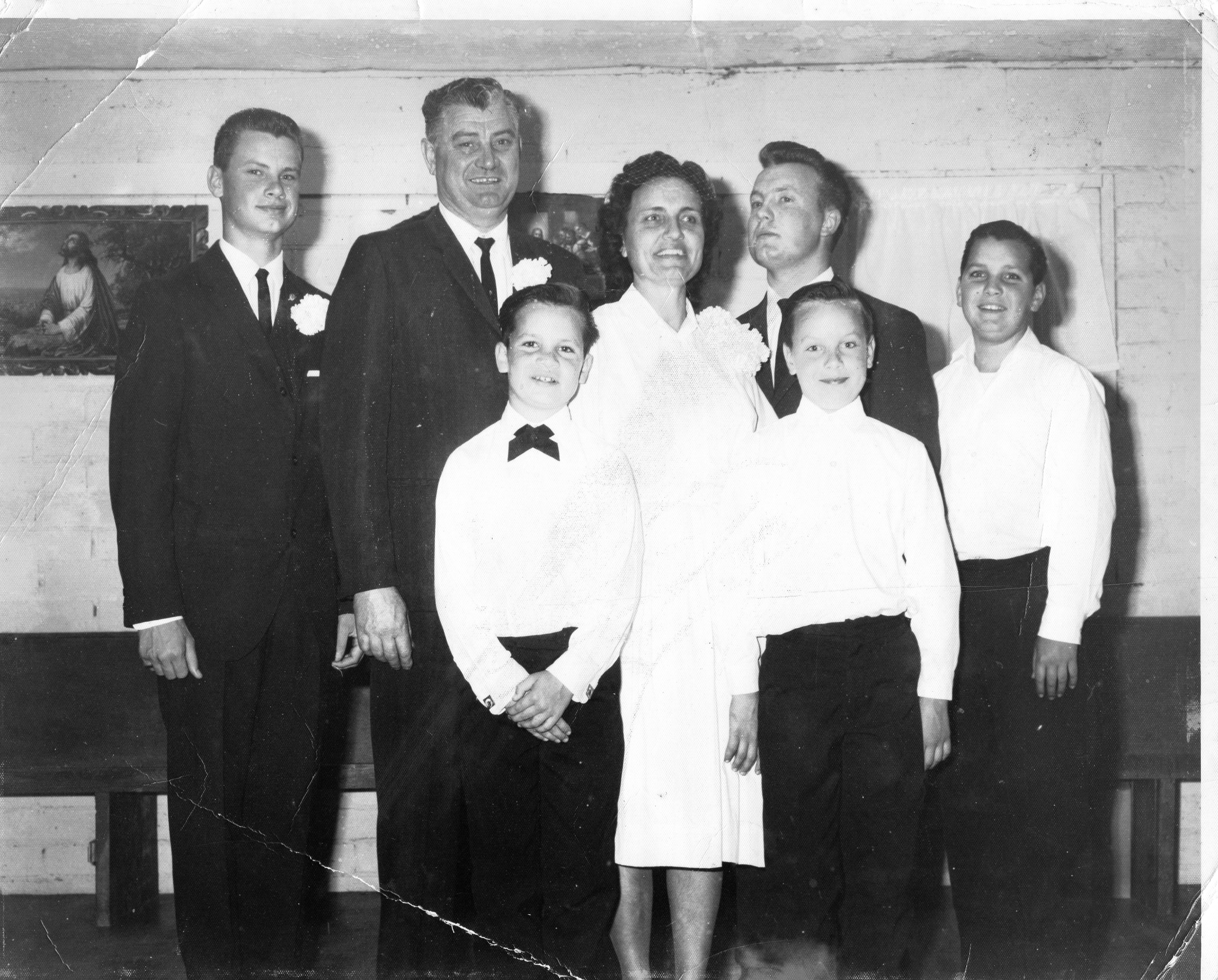 My mother wanted me to go down and be in the meeting at 11 years old, so I could tell her what they all said. And I had to sit there as these men just rundown my dad like crazy. And I just sat there and cried.
My mother wanted me to go down and be in the meeting at 11 years old, so I could tell her what they all said. And I had to sit there as these men just rundown my dad like crazy. And I just sat there and cried.
That went on till I left home, Daddy relapsing and getting sober and wanting to preach again, relapsing and getting sober and preaching again. And looking back now, he dealt with so much depression. But back then, nobody knew. There was no name for clinical depression.
One of the greatest whippings I ever got in my life, and it was intense, was when I told my little friend—and I was 9 at the time—that my mother and dad had an argument. But you don’t talk outside the family, and I hadn’t really learned that lesson yet. It was just an argument. It wasn’t like, “Dad’s doing crack,” it was just like they had an argument. But they had this philosophy that you had to be perfect, and all that did was just make everybody hide.
“[My parents] had this philosophy that you had to be perfect, and all that did was just make everybody hide.” – Russ Taff
But when I got home, my mother was waiting for me. She sat me down in a chair and got real close to me and said, “You don’t tell anybody what goes on in this family.” And she took her shoes off and threw them at me, screaming, “You don’t tell anybody what goes on in this family.” And took books off the shelf and just hurling while she was screaming, “Don’t tell anybody what goes on in this family!” And it wound up with me just balled up in a corner in a fetal position, and her just kicking and screaming, “You don’t tell anybody what goes on in this family!”
“And it wound up with me just balled up in a corner in a fetal position, and her just kicking and screaming, ‘You don’t tell anybody what goes on in this family!’” – Russ Taff
But it produced so much fear, just so much fear, impending doom. I mean, and I’m powerless to do anything. I can’t do anything.
What got me through that time is Mama had a key to the church. We lived about a half a block from it, and I would sneak down there at 11:00 o’clock at night. Nobody was there. And if it was a service night, everybody was gone. And I would open that dark church. It’s scary when you’re 11 years old. But I would just slowly, bench by bench by bench, get to the front. There was a little lamp on the desk, and I’d turn it on. I would go to the altar, and I would kneel, and I would just start telling Jesus how scared I was and tell Him, I don’t know what to do. You know, I’m paralyzed here, Jesus, which started years of, late at night, going down to the church and sitting and talking to Jesus. I never heard Him out-loud speaking to me. But I saw later in life how He was there. He was just there.
It developed a relationship with Jesus, that even the worst parts that I had to walk through with me, I would talk to Him. But that’s how I got through those years.
Music As an Escape
The way music affected me as a child, like I said, it was the only thing that I could do that was pretty good.
My escape was I used to just sit. Remember the old stereo system where they had the speakers that you could move? Mama bought a stereo like that. And I would turn the speakers in, and I would just lay between those two speakers with a pillow, and I would play music and just listen and listen. And that’s when I learned how spiritual music is, and how potent and powerful music can be.
There was this song that The Statesmen did called “Oh, What A Savior.” You know Ernie Haase, they do it out on the road. “Oh, what a Savior. Oh, hallelujah.” Oh, I would listen to that song, and I would tear up because I felt it. I felt. And I would jump up and move the needle back, and I’d lay back down and listen to that song again because it spoke to me. It spoke of God’s love. It spoke of His mercy and grace that I didn’t even know about yet. But when I was laying there and listening, it was like the Holy Spirit in me was being fed, and it gave me strength. It brought peace, even for just a little bit.
And my whole life, even in the darkest places that I had to walk through, music always could reach me where a sermon couldn’t.
“My whole life, even in the darkest places that I had to walk through, music always could reach me where a sermon couldn’t.” – Russ Taff
I could sit and listen to a sermon. But at that time in my life, I didn’t know how to let the sermon in because even at an early age, when you have a father that tries to instruct you about Christ, and then a month later he’s laying passed out in bed drunk. But music could always reach me.
Beginning a Storied Career—and Addiction
When I left home at 17, I couldn’t take it anymore. And I told my dad, “You know, I can’t live this way anymore.” They were moving back to California from Arkansas.
And he looked at me and he said, “You’ll never make it, you’ll never make it. You don’t have what it takes to succeed. And within four months you’re going to be calling me for money for a bus ticket to come back home.”
And that was his parting message to me. You can have all kinds of great stuff going on around you. But if you’re not well inside, doesn’t matter when you have a hole in your bucket that’s so big.
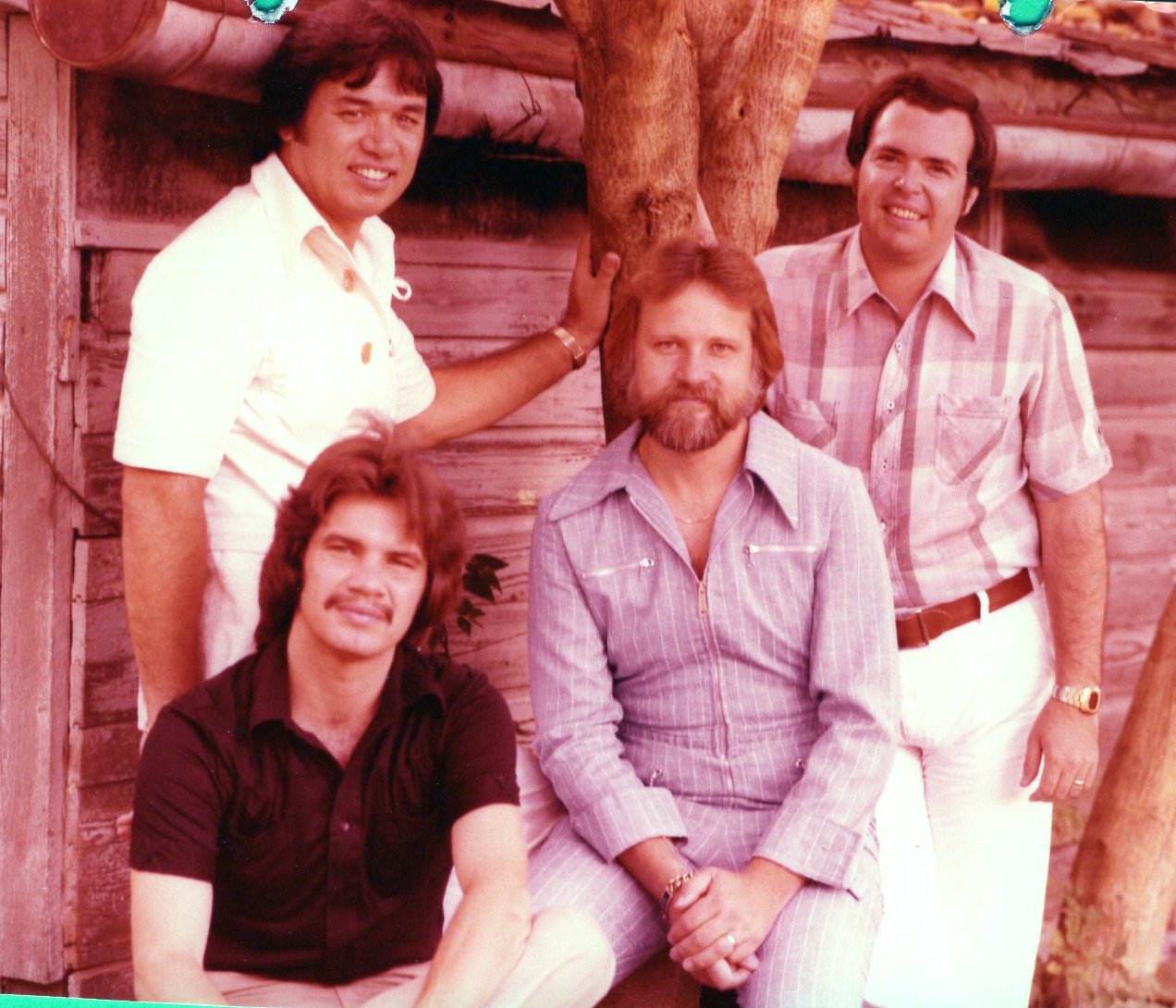 I joined the Imperials when I was 22, and I began to travel and sing.
I joined the Imperials when I was 22, and I began to travel and sing.
So there was always this place of great insecurity and their voices in my head. And you win a GRAMMY and you go back to the hotel, and within 20 minutes, it’s gone—the feeling. Because you’ll never make it, you’re not worth anything. The world is giving you the greatest gift they can for your music, and you don’t feel worthy of it. You just don’t feel worthy of it. And it held me. I mean, I was so full of shame, just shame, of the way that I was raised.
I loved Jesus. But my understanding of Him was so warped. And whenever I would read the Bible, I read it through their ears or their eyes and felt condemned. I just felt condemned. And I felt . . . and it was like I would walk on stage and become another person, singing and and praising. And as soon as I walk offstage, that old guy would jump back on me again.
“I would walk on stage and become another person, singing and and praising. And as soon as I walk offstage, that old guy would jump back on me again.” – Russ Taff
I started my career, and I saw God do incredible things. I saw Him move, but I didn’t feel worthy of it. And I was always so grateful when He showed up because I knew it wasn’t because of me.
I was in New York . . . and here in Nashville, there are people who socially drink, and it’s fine. You know, I don’t judge anybody. They’ll have a glass of wine with dinner or whatever, but they are not made up like I am. My daddy’s genes were passed on to me, and I didn’t know it. And I never drank because of him. I did not want to be like him.
So I was in New York on the fifth floor of an apartment building in the Village, and it was summertime. It was like July, and it was so hot. I drank a lot of Coke. But in the refrigerator, I opened it and I was going to take a Coke, and there was no Cokes left.
I saw three Heineken in there, and everybody around me, they can have it and walk away from it or not have it. It’s no big deal. But I thought, Well, I’ve seen other people . . . I’ll just try a Heineken. Dad drank vodka, so I won’t be like him.
I had that beer, and something began to happen on the inside of me. Immediately I had another one. There were three in there, and within an hour, I had all three.
But something started happening on the inside. I couldn’t hear those voices anymore. I didn’t hear, You’re not worthy. You’re not good enough. You’ll never make it. It quieted those voices to where I could actually stand, and I felt free. And when I did it, I praised God. I begin to thank Him. I can live this way. Those voices are gone. I think I’m okay. I’m okay. I knew nothing about alcoholism. I just knew, you know, Dad was a drunk. That’s what we called him.
“[The drinking] quieted those voices to where I could actually stand, and I felt free.” – Russ Taff
I would drink, and the voices would go away. But when you drink, you do stupid things. Your conscience is asleep. I started making choices that were dangerous, and that went on for eight years, nine years. But I kept isolating more and more and more.
I didn’t want to live in that world where I’m not good enough. And if you could have prayed it away, if you could have fasted it away, if you could have “praised” it away, it would have happened, because I did all those things a lot. But by this time, alcohol had a hold of me and I was addicted.
Then it got to the point I had to have it or otherwise I would go to shakes—I would get shakes real bad. The feeling is horrible, and then you get in that cycle that your body is crying out for it.
And you feel so guilty about your life, and that you’re standing on stage talking about Jesus—which you believe—and I loved Him. But I would walk off that stage, and the first thing I want to do is just numb myself. I want to be numb. If I can just be numb, I can be OK.
And that started it. That started it. But so quickly it turns on you. Any kind of drug, you know. For me, it was alcohol. For other people, it’s hydrocodone or Xanax or whatever because I believe a drug is a drug. But that’s how it all started for me.
Taking the Leap from Group to Solo Act
Narrator: As Russ wrestled with his feelings of unworthiness and his own attempts to stop the voices in his head with alcohol, he also made a big shift in his career.
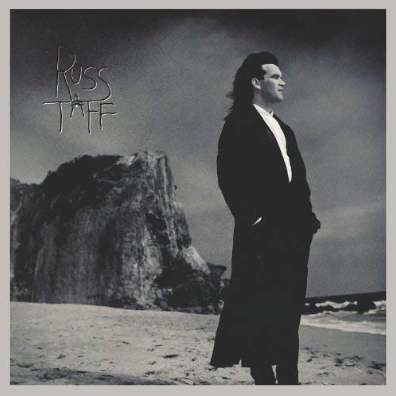 Russ: And so after five years and five records, I just felt like it was time to go. I think “Priority” had just come out, but I knew in my heart. I was down in Tyler, Texas, with the Imperials—we were getting ready to do a concert there, and I was so scared to leave the Imperials. I mean, I was having a steady paycheck, and if I go out on my own, there’s no guarantees. And I had people at the record company, I had people around saying, “Not too many people have ever left a group and made it as a soloist. You better think this through.”
Russ: And so after five years and five records, I just felt like it was time to go. I think “Priority” had just come out, but I knew in my heart. I was down in Tyler, Texas, with the Imperials—we were getting ready to do a concert there, and I was so scared to leave the Imperials. I mean, I was having a steady paycheck, and if I go out on my own, there’s no guarantees. And I had people at the record company, I had people around saying, “Not too many people have ever left a group and made it as a soloist. You better think this through.”
The generation before me, the Depression era, is like, “You got a job with money coming in, and you better keep it.” But I just . . . the Holy Spirit was calling me, and I knew it. And I began to write that song, “Be Still My Soul.”
Surrounded by the cares of life
situations rise, they press against my soul
desperate thoughts have blocked me.
It feels like I’m losing control
but somewhere there’s a voice inside of me
that brings comforts and fill my heart with courage
and lets me know everything’s gonna be alright.
I hear Him say, “Be still my soul and know that He is God,
Stand quietly, He is The Lord.
If God is for me, who can be against me?
Be still my soul, He is The Lord.”
Russ: And that solidified it—my fear, my belief—and it was time to go. So I met with Armand and Jim, and I was like, “It’s time. It’s time.” It wasn’t received with a lot of fanfare because we were selling so many records and packing concert halls and everything else. But it wasn’t my dream.
“Would You Be Made Whole?”
Narrator: As Russ moved through a new phase of his career, his wife Tori stood by his side. And through the next many years of addiction. With multiple ups and downs, she never gave up.
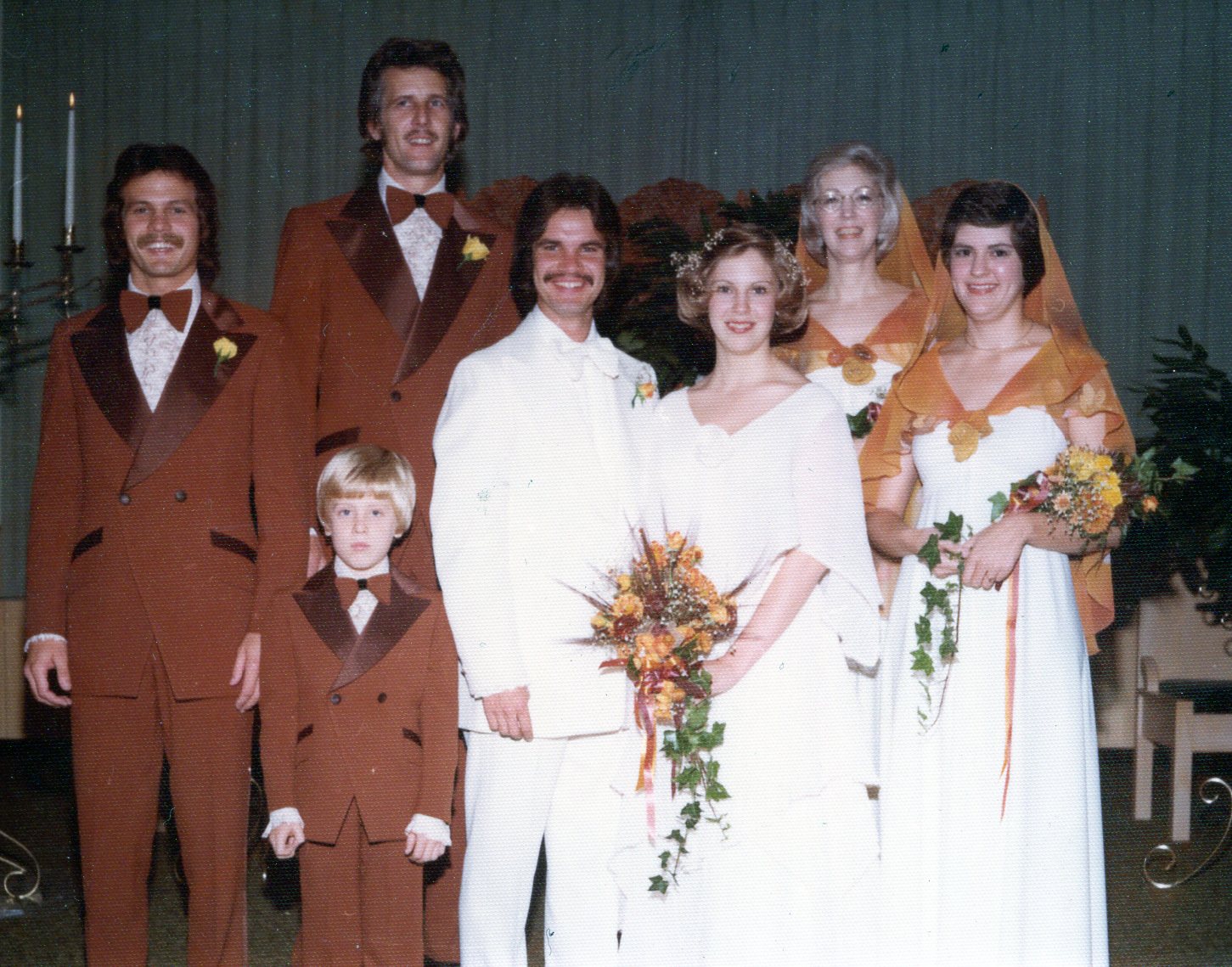 Russ: She’s an amazing woman. I mean, she’s so much more together than I am. She’s a strong woman and fiercely protective of our kids. She’s creative. She’s funny.
Russ: She’s an amazing woman. I mean, she’s so much more together than I am. She’s a strong woman and fiercely protective of our kids. She’s creative. She’s funny.
But she didn’t know what was happening. She knew—again, you didn’t use terms like “alcoholism” or “addiction.” It was just . . . she knew I was changing, and my personality was changing. And I was isolating more and more and more. But what made it work, I guess, when I was just going through such a questioning time, I had to learn how to live again. When you stop abusing yourself, when you stop making horrible choices, it’s like you don’t know how to do it the right way, because you have done it the wrong way for so long.
“When you stop abusing yourself, when you stop making horrible choices, it’s like you don’t know how to do it the right way, because you have done it the wrong way for so long. “ – Russ Taff
But she never took any crap off me. She never backed down, never, “Oh, bless you,” you know. She was like, “Look, you’re taking an incredible thing here, and you’re blowing it. You’re blowing it.”
She is not this little pushover of a woman that I can talk into whatever. She’s a mountain. She has strong values. She will do what’s right—no matter what, she will do what’s right. There were times when I didn’t know if I’d come out of the spiral I was on because in the middle of all of that, you add deep clinical depression, which I was diagnosed, and then you add addiction to that. And it’s just a formula for disaster. But early on, she would say, “Okay, I’m going to fight for you until you learn how to fight for yourself, because you don’t know how to fight for yourself.”
At that point where . . . we all thought it was over. The therapist that we saw is like, “He’s not going to pull out of this. You might as well just start making plans, because he is spiraling. This depression will not let up. And he’s covering everything up with alcohol.”
I just knew that Jesus wanted me to stay with her. I did. And I knew Jesus wanted me to try to make this work, even in my sin. I loved Him, because I’m still that 12-year-old boy that will go down there and talk to Jesus. And inside of me, deeper than all of the addiction, and all of the shame, and all the stuff that I grew up with that was so negative—underneath all of that, I really loved Jesus and I wanted Him to be proud of me, even I knew He wasn’t. But He and I still had that connection, and that would always bring me back.
“Inside of me, deeper than all of the addiction, and all of the shame, and all the stuff that I grew up with that was so negative—underneath all of that, I really loved Jesus and I wanted Him to be proud of me, even I knew He wasn’t.” – Russ Taff
I think about that scripture. It was the crippled man at the gate or by the pool, I don’t remember. But when Jesus looked at him—and I always thought it was the wildest phrase—He said, “Would you be made whole?” It was like asking him a question. And you think, Well, of course he would.
 But what Jesus was saying, I think, was, Your whole world’s going to change when I heal you. You’re going to have to get a job. You’re you’re going to have to start spending all the time with your kids and you have not because you’re sitting here begging all day long and. Okay, you want to be made whole? It’s work. It’s work. Yeah, I’m gonna heal your legs, but this has got to be healed also, because you’re a beggar mentality. You’re you’re a beggar. You’re going to be a man, and you have to learn how not to beg anymore. You have to learn to take responsibility for yourself.
But what Jesus was saying, I think, was, Your whole world’s going to change when I heal you. You’re going to have to get a job. You’re you’re going to have to start spending all the time with your kids and you have not because you’re sitting here begging all day long and. Okay, you want to be made whole? It’s work. It’s work. Yeah, I’m gonna heal your legs, but this has got to be healed also, because you’re a beggar mentality. You’re you’re a beggar. You’re going to be a man, and you have to learn how not to beg anymore. You have to learn to take responsibility for yourself.
And I felt like Jesus was saying that to me, Would you be made whole? Oh sure, sure, sure, He goes, It’s going to cost. It’s going to cost your time. It’s going to cost you determination. It’s going to cost you to never, ever give up if you want to be made whole. Because I felt like when you grow up in addiction and trauma, your brain kind of rewires itself to survive. And I felt like Jesus was saying to me, This is going to be a process. We’ve gotta rewire that thing, and let you start living with a joy mentality and happiness mentality and work mentality.
The saddest thing about addiction: it takes away your creative force. It just takes it away. And you’re not in your gift. You’re not doing what God put you on this planet to do.
When I began to sober up that broke my heart too. That those years of creativity that brought me to the table was being robbed from me, and it was my choice.
But there were days I did not want to go to that counselor’s office. [But Jesus would say,] But do you want to be made whole. Do this. I’m going to bring things to you, tasks for you to do, that’s going to help you rewire your brain. Are you willing? I’m not just going to go, “Zip! Your whole brain’s rewired. And go your way, sin no more.” I can heal your body, but we’ve got to heal your mind because that’s where the problem is.
And that took a long time. There were times I wanted to give up, but I didn’t. No I didn’t. I kept getting up and going to meetings and going to that counselor and going to marriage counseling. Tori always says that’s the reason that she stayed, because she saw me do the work. And I worked hard, and I have moved in these last years to this place of joy and happiness that I drank so hard to find and I couldn’t in that, but [now I can] just sit here peacefully.
“I have moved in these last years to this place of joy and happiness that I drank so hard to find and I couldn’t in that. But [now I can] just sit here peacefully.” – Russ Taff
Gloria Gaither used to say to me, “The thing I love about you is you never give up. You never quit.” And there were times that I didn’t think I was going to make it. You know, I didn’t think, I’m going to come out of this one.
But you know what? I’m a better dad than I’ve ever been. I’m a better husband than I’ve ever been. I’m a better friend because I didn’t quit. I didn’t give up. It wasn’t a quick fix, and I’m back out again. It was, Will you be made whole? Will you pay the price? Will you get in there and do it with everything you’ve got? And if you’re not willing, I can’t do anything for you. I’m laying this task out. Will you be made whole?
And when I said yes, I meant it. And it was years—it was years rewiring this brain to think like a child of God, to think like an heir to the promise. But the miracle . . . I would have people tell me that had been around addiction before, they would say, “Don’t give up before the miracle happens, because it’s going to happen. You keep doing the work. Keep doing what’s in front of you, and the miracle will happen.” And it did. Happy, joyous, and free. I mean, they were telling me the truth. Today I’m happy, joyous, and free.
“Remember Who You Are, Remember Who I Am.”
When you’re young, I was telling you about pulling the speakers around either side of my head and listening, and you began to get a sense of the Holy Spirit. And even young, you begin to recognize Him a little bit, with the way even my physical body would respond to songs. Even through my teens and through my life, I have learned to spot Him. And I know it’s Him. I’ve learned to trust that.
Years ago, when I was introduced to this book, Jesus Calling, it hit me like those songs did. It hit a place in me that was real and true and full of the Holy Spirit. And every one I would read would affect me and would touch me. And I knew it was Jesus. I knew it was the Holy Spirit directing me for that day. And so it became an important part of my life, where you get up and brush your teeth and so on, and you read the devotional for that day. It’s not a self-help book. It’s not something teaching you how to . . . It’s the Holy Spirit—honestly, it’s the way it felt to me—dumping into you for that day. Remember, remember who you are. Remember who I am. Remember you can get through this situation, whatever it is.
When you’re full of negativity, you’ve got to learn how to think right. And this book, this book has been very influential to my recovery and my healing.
So let me read mine:
I speak to you from the depths of your being. Hear Me saying soothing words of Peace, assuring you of My Love. Don’t listen to voices of accusation, for they are not from Me. I speak to you in love-tones, lifting you up. My Spirit convicts cleanly without crushing words of shame. Let the Spirit take charge of your mind, combining out of tangles of deception. Be transformed by the truth that I live within you.
The light of My Presence is shining upon you in benedictions of peace. Let My Light shine in you; don’t dim it with worries and fears. Holiness is letting Me live through you. Since I dwell in you, you are fully equipped to be holy. Pause before responding to people or situations, giving My Spirit space to act through you. Hasty words and actions leave no room for Me; this is atheistic living. I want to inhabit all your moments—gracing your thoughts, words and behavior.
Amen, amen.
I have felt the Lord dealing with me about this for the last four years. I didn’t know how. But I felt in my heart that He would get glory if I tell everything, if I take people to those dark places where I was, that I didn’t know if I would get out, and how He would come.
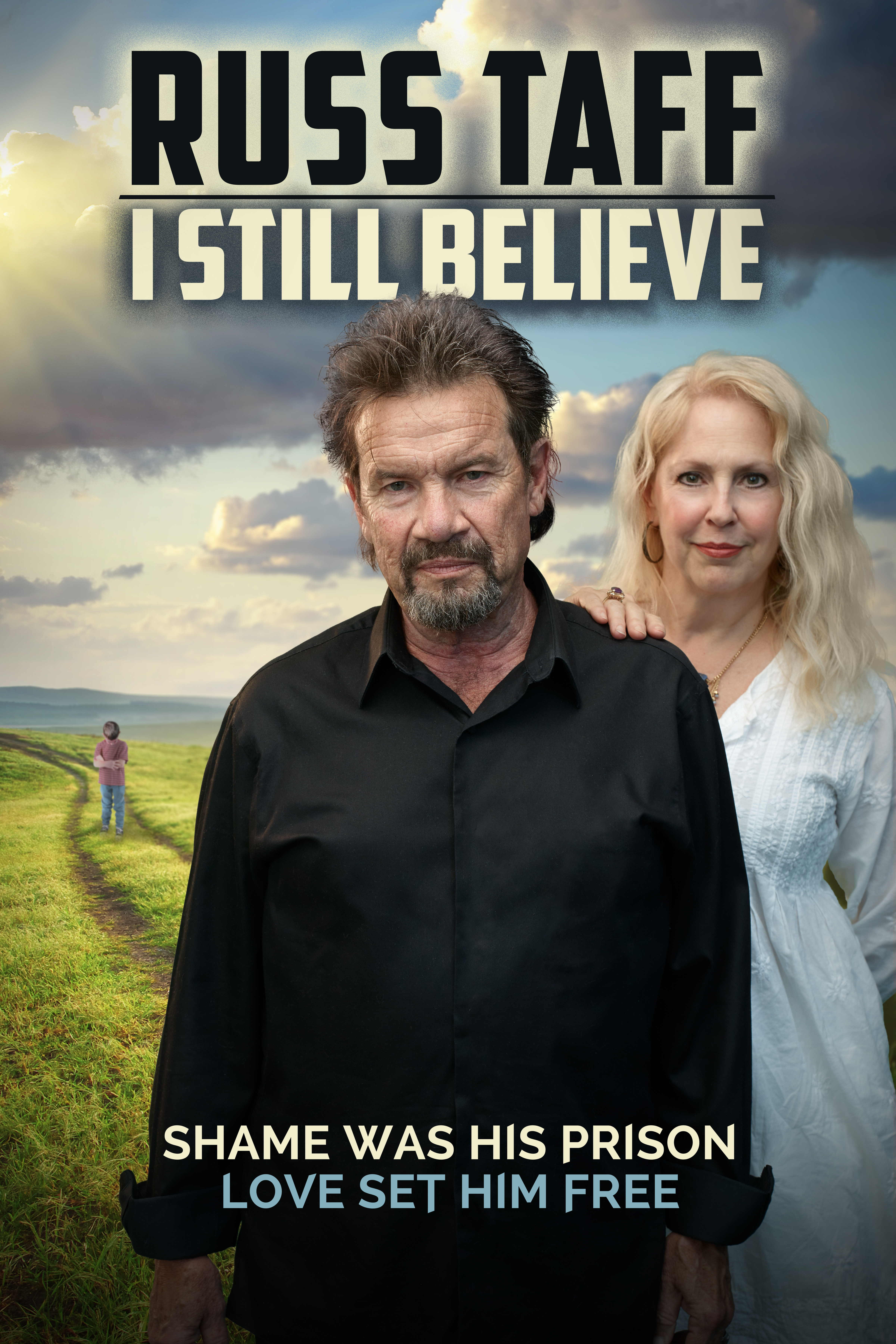 In doing this movie, I’ve been able to go back and retell things. But it’s amazing how one memory would lead to another memory, to another memory, and stuff that I had just forgotten, but my brain and body hadn’t forgotten. It was healing and it was scary because you’re throwing it out there, and you don’t know what people are going to do. You remember those years in that little church and how people were. But you are more concerned about telling your story so people can see how big Jesus is when He lives in us.
In doing this movie, I’ve been able to go back and retell things. But it’s amazing how one memory would lead to another memory, to another memory, and stuff that I had just forgotten, but my brain and body hadn’t forgotten. It was healing and it was scary because you’re throwing it out there, and you don’t know what people are going to do. You remember those years in that little church and how people were. But you are more concerned about telling your story so people can see how big Jesus is when He lives in us.
I think for many people, and for me for a long time, I didn’t move into the grace of this life and Jesus and who He really is. That was always there waiting for me, but I was told I wasn’t good enough to have it.
And my dad, bless his heart, when he died, he was in the hospital and all his organs and stuff started shutting down, and I tried to talk to him. Our relationship had always been very strained, very strained. But I was talking to him on the phone when he was in the hospital, and he would say things like, “When I see Jesus, I hope my good outweighs my bad,” and that scripture “weighed in the balance and found wanting.”
He was terrified, terrified to die because he never learned grace and never thought he was worthy of grace. He thought he had to pay for the years of addiction and years of abuse that he caused other people, and especially the family. But I have this picture in my brain of him crossing over and just being embraced with a love that he’s never known and didn’t think he deserved. But when he crossed, I know he was shocked that Jesus was there with His arms wide open.
Finally Feeling Good Enough to Receive Jesus’ Love
I’ll say again: if you don’t think you’re worth it, you’ll never be able to fully take a compliment, receive gratitude from people, or receive praise about your last record and what it did for them, because always the core of your being—it’s the difference between shame and guilt. You know, guilt says, I did something bad, and I will do what it takes to be forgiven and make it right. But shame says, You are bad. Down to your core, you are bad. And no matter how much you pray, no matter how much you fail, no matter what you do, you’ll never be worthy.
And I began to see a Jesus I didn’t know, how full He is of love and grace and mercy. And that’s who Jesus was that I didn’t know.
“I began to see a Jesus I didn’t know, how full He is of love and grace and mercy. And that’s who Jesus was that I didn’t know.” – Russ Taff
I feel the presence of Jesus around us, and there’s peace.
[embedded content]
Narrator: Russ’s new movie I Still Believe will be playing in cinemas nationwide October 30 at 7:00 p.m. local time. Immediately following the film, theater audiences will have the opportunity to view a special acoustic session with Taff and his friend, multi-GRAMMY® Award-winning singer/songwriter Steven Curtis Chapman. Tickets for Russ Taff: I Still Believe can be purchased at FathomEvents.com and participating theater box offices.
Narrator: We’ll return to the second half of our show after a brief message about a new product from Jesus Calling.
Three days following the Fathom Event, Multi-GRAMMY® and Dove Award-winning artist Russ Taff will also release his debut praise and worship album, Believe, on November 2. His first new album in over seven years, the 12-song project features new recordings with some of Taff’s best-loved hits and features acclaimed guest artists like Amy Grant and David Crowder.
Tickets for Russ Taff: I Still Believe can be purchased at FathomEvents.com and participating theater box offices.
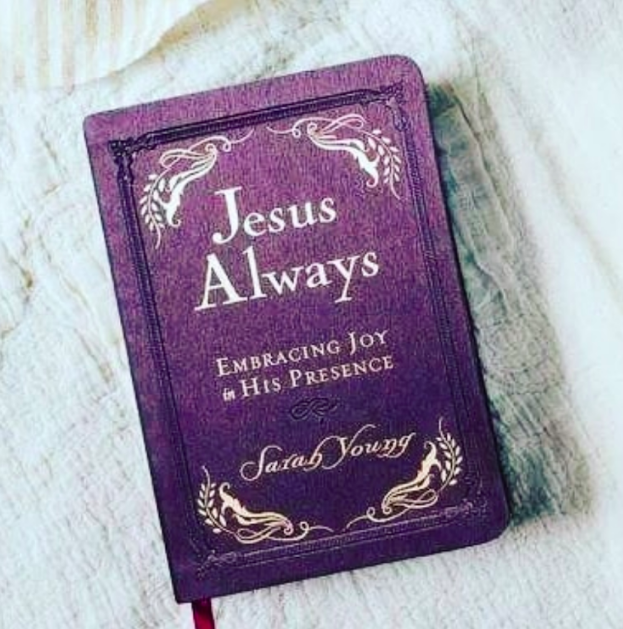 Narrator: Just in time for the gift-giving season, Jesus Always, Sarah Young’s newest 365-devotional that brings Jesus’ message of joy to you, is now available in an easy-to-carry, pocket-size edition with a striking leather-soft cover and beautiful interior design. This elegant gift edition makes it the perfect choice to give to someone special or a personal gift for yourself. Learn more at JesusCalling.com
Narrator: Just in time for the gift-giving season, Jesus Always, Sarah Young’s newest 365-devotional that brings Jesus’ message of joy to you, is now available in an easy-to-carry, pocket-size edition with a striking leather-soft cover and beautiful interior design. This elegant gift edition makes it the perfect choice to give to someone special or a personal gift for yourself. Learn more at JesusCalling.com
Narrator: Our next guest is author and Bible teacher Wendy Pope. Wendy has a heart for speaking to women and helping them step boldly into the lives that God has designed for them. Today, Wendy tells us about her newest book Yes, No, and Maybe: Living with the God of Immeasurably More. She shares how we can see past our disappointments and unfulfilled dreams and instead how we can discover treasures in our lives we may not be able to see at the surface.
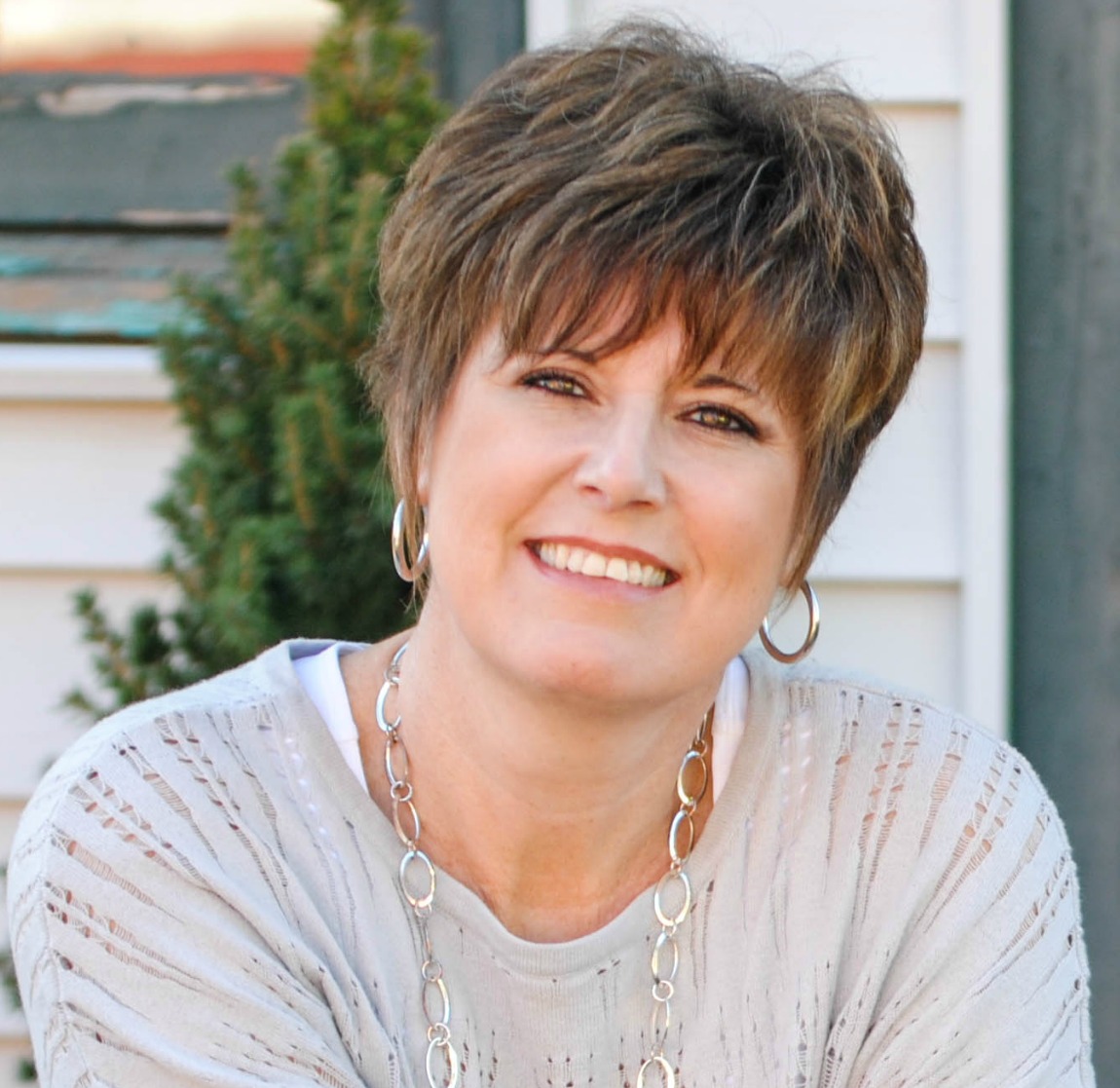 Wendy Pope: I am Wendy Pope. And I describe myself as a wife, a mom, and a lover of Jesus and His Word. I have the privilege of writing Bible studies for women and also writing Christian trade books for women.
Wendy Pope: I am Wendy Pope. And I describe myself as a wife, a mom, and a lover of Jesus and His Word. I have the privilege of writing Bible studies for women and also writing Christian trade books for women.
I absolutely love my family and I have a very large extended family. We were my husband. Both were born and raised in the Charlotte area and we moved away for a short time. But as soon as we had our first child, we moved back to the Charlotte area so that our children could be raised near grandparents aunts uncles and cousins. And I can’t imagine living anywhere else.
I have a deep heritage of a strong Christian faith, and we just have a very close knit family and just love being around them all of caring for them. My parents are at a place now where they’re aging, and it’s a privilege that I get to take care of them in their senior years.
Changed by God’s Word
When I was a little girl, God was huge to me. I got my very first Bible of my very own with my name on it embossed in gold when I was seven, right when I received Jesus as my Savior. And He was huge to me, His Word was huge to me. Everything was just out there. And I always loved God, and I always loved His Word. I loved hearing His Bible, His Word around my Bible around. And I loved that had pictures in it because I wasn’t a strong reader. So I knew that I could figure out something by a picture. And that’s how I fell in love with God, but He was still “up there.”
And that wasn’t until I became an adult and I started really facing some challenges in my life, in my family, in my marriage that I thought, Wow. Maybe ought to read the Bible? And it’s when I started reading the Bible, and I started taking the Word of God in and obeying the Word of God that it became life to me, and life-changing to me.
Growing a Heart for Serving Women
I became involved with Proverbs 31 probably about 15 years ago. My son was very young, my daughter was 3. My son was a toddler, barely crawling at the time. And we invited Lysa TerKeurst, who is the president of Proverbs 31 Ministries, to our church to be our speaker. And I met her. I just fell in love with her immediately. I loved her passion for teaching women God’s Word. I loved her story. She’s got quite a story of redemption in her life. And she just inspired me.
She invited me to come to a writers and speakers conference. The Proverbs 31 Ministries puts on called She Speaks. And I went the very first year, and I knew in my heart that this is what God wanted me to do. He wanted me to minister to women.
My heart is for women to get the Word of God in them, because it will change the climate of their home. It did mine. I’m living proof that when you put the Word of God in and you start to live it out, things change. And so I just want the same change that happened in my heart to happen in other women and in other homes because then it will go into the community and change the kingdom of God.
“My heart is for women to get the Word of God in them, because it will change the climate of their home.” – Wendy Pope
Yes, No, and Maybe: A Testimony of Abundance with Him
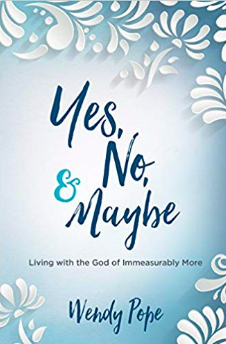 Narrator: Wendy knows that sometimes when life feels routine, we can succumb to the weariness of our unfulfilled dreams and unanswered prayers. In her new book Yes, No, and Maybe, Wendy reminds readers that through Christ, we have so much more to live for. Wendy tells us how those three words, yes, no, and maybe, can help us revitalize our relationship with Jesus.
Narrator: Wendy knows that sometimes when life feels routine, we can succumb to the weariness of our unfulfilled dreams and unanswered prayers. In her new book Yes, No, and Maybe, Wendy reminds readers that through Christ, we have so much more to live for. Wendy tells us how those three words, yes, no, and maybe, can help us revitalize our relationship with Jesus.
Wendy: Yes and no and maybe are three words that I carry throughout the entire book. And they are the catalyst for change in your life because they were the catalyst for change in my life.
- Yes cultivates a trust with God.
- No invites revelation from God. He teaches us who we really are through the power of scripture.
- Then maybe welcomes freedom with God. Paul talks about it. It’s immeasurably more than we can ever think or ask and it’s the freedom that He died to give every believer.
Oh Yes, No, and Maybe is my testimony.
Early on in motherhood, just struggling to figure out how to be a mom and how to be a wife, I began to really seek God and seek His Word. And it was through learning to say ‘yes’ to God and learning that I could trust God and He could trust me that I learned there were some things about myself that didn’t reflect God. And He taught me to say ‘no’ to myself, which is not something I like to do. But when I started saying ‘no’ to myself, like things that would bring me joy and maybe not and maybe leave someone else out, I began to include people. I begin to do things for people rather than waiting for people to do things for me.
“I began to really seek God and seek His Word. And it was through learning to say ‘yes’ to God and learning that I could trust God and He could trust me that I learned there were some things about myself that didn’t reflect God.” – Wendy Pope
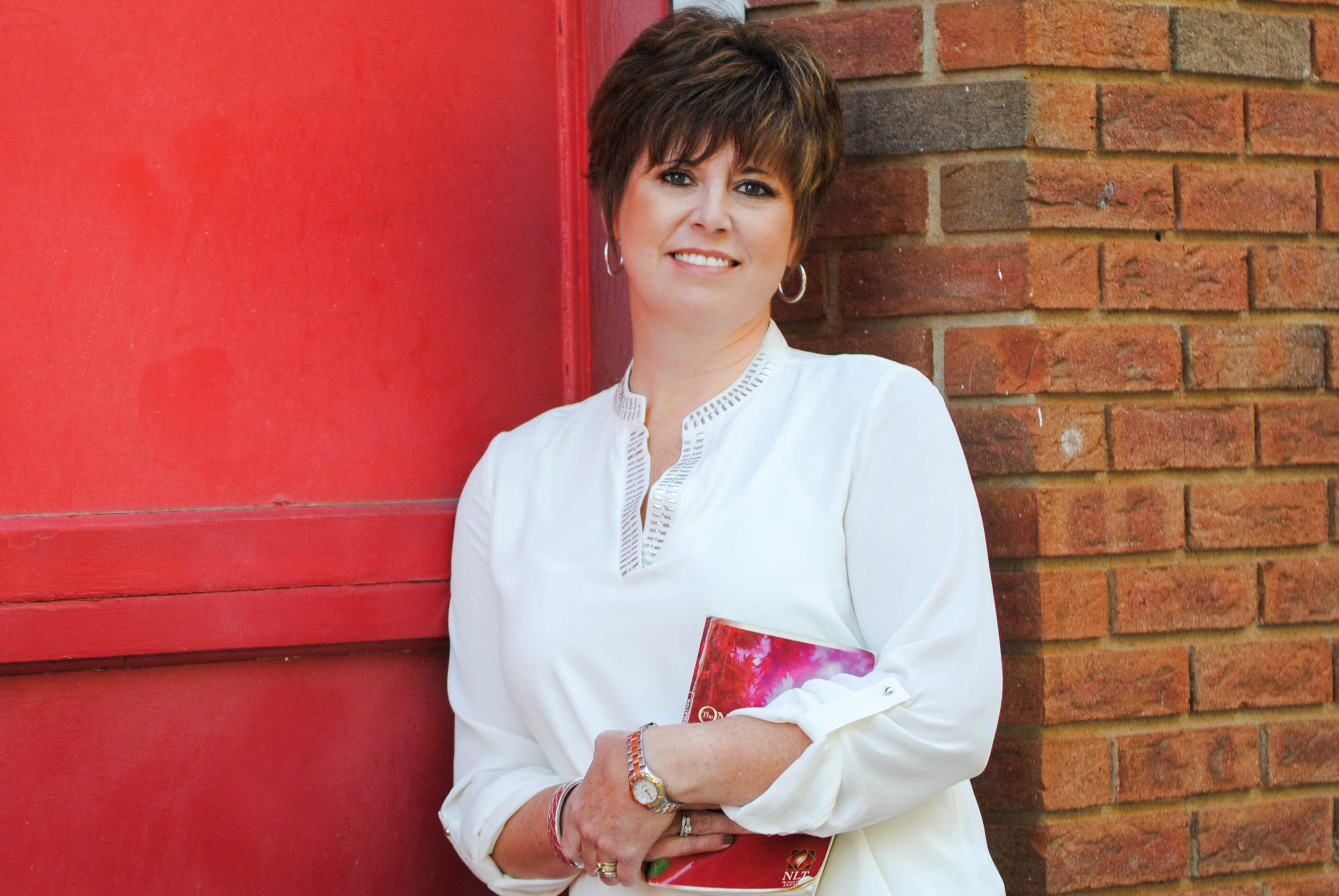 When I begin to say ‘no’ to myself, I began to see Christ in me, and others could see Christ in me. And then it welcomes a freedom with the word maybe that we can live out our calling with great freedom with God, and know when to take service opportunities and when this is not a good opportunity to serve, so I’m going to have to say ‘no’ to that. But these three principles have fundamentally changed my life and they have brought balance into my home and great joy into my home.
When I begin to say ‘no’ to myself, I began to see Christ in me, and others could see Christ in me. And then it welcomes a freedom with the word maybe that we can live out our calling with great freedom with God, and know when to take service opportunities and when this is not a good opportunity to serve, so I’m going to have to say ‘no’ to that. But these three principles have fundamentally changed my life and they have brought balance into my home and great joy into my home.
I share in Yes, No and Maybe, at the very beginning, 13 words that changed my life. And I carry the thread of those 13 words throughout the entire book.
My husband and I were having what I like to call an “intense moment of fellowship.”
He had been working all day and came in. I had in my mind and in my heart rehearsed everything that I was going to say to him. I don’t yell, so it wasn’t going to yelling at him. I was just going to make my point. Maybe you know what I’m talking about.
And I had this zinger, this line that I was going to just get him with. And I was not prepared for what he was going to get me with.
And the line that I said to him was, “You don’t ever act like you want to come home.”
His answer and response took me by surprise when he said, “You don’t make our home a place that I want to come to.”
Now I could have gotten mad, which down inside I sort of did. But because I had been spending time with God and learning to say ‘yes’ to Him and ‘no’ to myself, I decided to take those words in and take the hurt that I felt and the anger that I felt to God.
And I asked God, What is the truth in this? Is there any truth in this? And if there is help me deal with this. And He did. And there was truth.
And I was going to have rebellion and anger and bitterness and sadness in my home unless something changed. Now certainly down inside I was telling God, “Go change my husband, go change my husband.” And I decided to let God be my husband’s Holy Spirit instead of me, and I allowed the Spirit to do a work in me. And my home has definitely changed because of those 13 words—and my life has changed because of those 13 words.
Finding Strength in God’s Word
Narrator: Through seasons of change, Wendy has seen the power that scripture has had in her life. She tells us how Jesus Calling is a tool she uses to dive deeper into God’s Word.
Wendy Pope: I love Jesus Calling. I have read it, and I continue to use it as a resource in my writing and in my spiritual walk with the Lord. What I love most about Jesus Calling is its simplicity and the fact that it points me back to the Word of God, because the Word of God is where I find my strength.
“What I love most about Jesus Calling is its simplicity and the fact that it points me back to the Word of God, because the Word of God is where I find my strength.” – Wendy Pope
I’m going to read a passage from Jesus Calling from September the 2nd.
Living in dependence on Me is a glorious adventure. Most people scurry around busily, trying to accomplish things through their own strength and ability. Some succeed enormously; others fail miserably. Both groups miss what life is meant to be: living and working in collaboration with Me.
When you depend on Me continually, your whole perspective changes. You see miracles happening all around, while others see only natural occurrences and “coincidences.” You begin each day with joyful expectation, watching to see what I will do. You accept weakness as a gift from Me, knowing that My Power plugs in most readily to consecrated weakness. You keep your plans tentative, knowing that My plans are far superior. You consciously live, move, and have your being in Me, desiring that I live in you. I in you and you in Me. This is the intimate adventure I offer you.
Deeply Rooted in the Scriptures
“One of my favorite things as an author is to share what kind of mess I really am and share my stories and the way that God has allowed certain things to happen in my life to show me my need for scripture.” – Wendy Pope
Scripture and the Word of God is more than something we just carry to church on Sundays. Anytime that we are working so hard to fulfill unfulfilled dreams and not focusing on God and His word, we’re going to be disappointed. We have to submit to our Savior and we have to be deeply rooted in the scriptures, and that is where we’re going to find real joy.
Narrator: To learn more about Wendy’s new book, Yes, No, and Maybe, please visit wendypope.org.
Narrator: Next time on the Jesus Calling podcast, we visit with Rachel Hollis, the #1 New York Times bestselling author of Girl, Wash Your Face. Rachel is a top motivational speaker and CCO of The Hollis Company, plus a mother of four. Rachel shares the motivation behind her passion to challenge women to reach for a better version of themselves each day.
Rachel Hollis: Our potential is our gift from God. What we’re capable of is our gift from God. And I can’t fathom anything more horrifying than you dying with all your potential left inside of you because you were worried about what other people would think of you stepping into who you’re meant to be.
